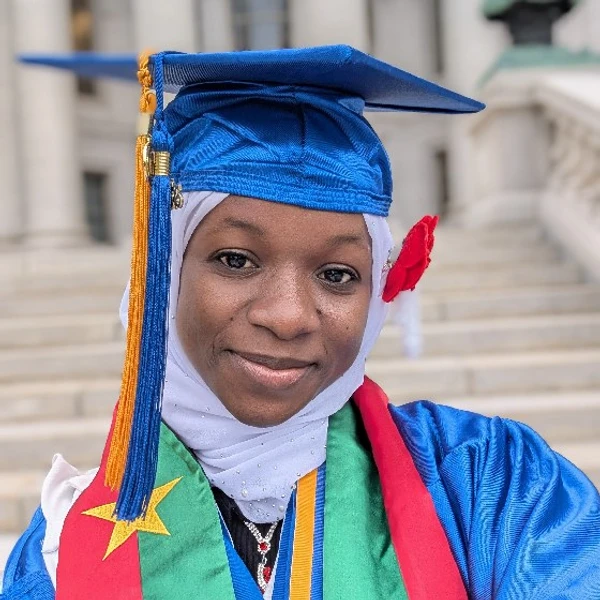
Hobbies and interests
3D Modeling
Advocacy And Activism
Artificial Intelligence
Engineering
Data Science
Community Service And Volunteering
Coding And Computer Science
Human Rights
Machine Learning
Yoga
Writing
Math
Reading
Volunteering
Teaching
Public Speaking
Knitting
Cognitive Science
Coaching
Mental Health
Mentoring
Poetry
Spirituality
Singing
Social Justice
Research
Robotics
STEM
Reading
Leadership
Academic
Education
How-To
Literary Fiction
Adventure
Social Issues
Psychology
Romance
I read books multiple times per month
Hawa Nayaga
1,435
Bold Points2x
Finalist1x
Winner
Hawa Nayaga
1,435
Bold Points2x
Finalist1x
WinnerBio
I am Hawa Nayaga, a recent graduate in Electrical Engineering and Technology from Madison College. Originally from Burkina Faso, I moved to the U.S. with a deep desire to use engineering to create solutions that uplift communities. My academic journey has been driven by hands-on innovation—building microcontroller systems, FPGA-based circuits, and mobile-controlled devices—and fueled by a passion for access and equity. As Vice President of Fellowship for Phi Theta Kappa and Outreach Coordinator for Madison College’s Volunteer Center, I’ve led service projects, mentored peers, and connected students with opportunities to grow. My Honors Project focused on building low-power, offline communication networks for underserved areas in Africa. I’m currently learning AutoCAD and diving into power systems and digital substation technologies, with a long-term goal of designing sustainable, impactful systems for the communities that need them most. Engineering, for me, isn’t just a career—it’s a calling to serve.
Education
Milwaukee School of Engineering
Bachelor's degree programMajors:
- Engineering, Other
- Engineering, General
- Electrical, Electronics, and Communications Engineering
- Electrical and Computer Engineering
- Computer Engineering
- Engineering Science
- Engineering/Engineering-Related Technologies/Technicians, Other
Miscellaneous
Desired degree level:
Bachelor's degree program
Graduate schools of interest:
Transfer schools of interest:
Majors of interest:
- Computer Engineering
Career
Dream career field:
Computer Hardware
Dream career goals:
Welcome Center Front Desk Attendant
Madison Area Technical College Welcome Center2023 – 20252 years
Research
Electrical and Computer Engineering
Madison Area Technical College Honor Project — Honor Student2024 – 2024
Public services
Volunteering
Girls'Inc — Stem Mentor2024 – 2024